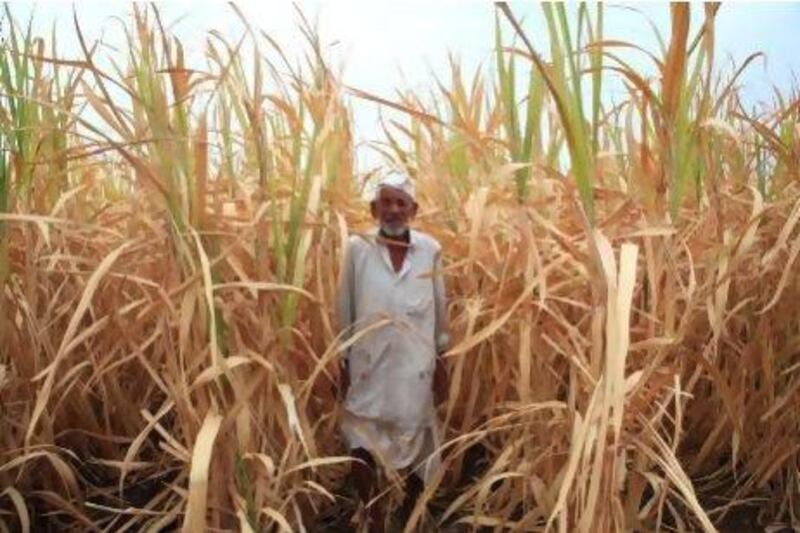Bhagwan Shinde, 90, forlornly surveys his sugar-cane plantation. His crop is dead.
The farmer from Solapur, a district in the state of Maharashtra, India, was unable to keep his four-acre plantation alive after authorities banned the local reservoir from being used for irrigation five months ago because of the drought.
Sugar cane is a thirsty plant, requiring more than 10 times as much water as many other crops. Mr Shinde lost 400,000 rupees (Dh26,406) as a result, half of which he had borrowed from a private lender at an interest rate of 3 per cent per month.
"I'll have to sell my cattle to pay the lender," says Mr Shinde, pointing to a few scrawny cows that would cover about 40 per cent of the loan. Other sugar plantations around his, however, have just about been kept alive and there are others elsewhere in the state that are flourishing. Mr Shinde says some of the other farmers nearby have done this by illegally piping water through to their fields from a nearby reservoir.
The sugar-cane industry is widely blamed as one of the factors exacerbating the Maharashtra drought.
"Solapur is the number one district in all of Asia with 28 sugar factories running," says Ketan Shah, the joint secretary at the chamber of commerce, industries and agriculture, in Solapur.
"The economy is based on sugar cane," says Sahebrao Gaekwad, the deputy district collector for Solapur. "There should be a balance between sugar production and drinking water supply. The drinking water supply should not be hampered. That's why the sugar cane production has been lowered much more. Only those sugar cane which were standing last year and those to be cut down, they will only continue. The growing of new sugar-cane crops has been reduced."
He says that better planning and more efficient use of water can resolve the situation. Sugar producers are taking initiatives and more and more are converting to less water-intensive drip irrigation methods, Mr Gaekwad says.
"If scarcity continues, the sugar cane will be stopped."





